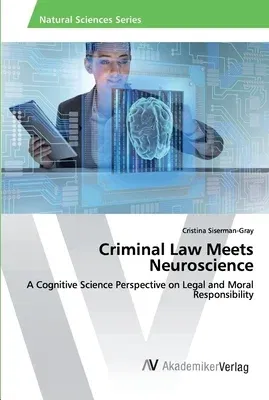Cristina Siserman-Gray
(Author)Criminal Law Meets NeurosciencePaperback, 18 June 2019

Qty
1
Turbo
Ships in 2 - 3 days
In Stock
Free Delivery
Cash on Delivery
15 Days
Free Returns
Secure Checkout
Print Length
168 pages
Language
English
Publisher
AV Akademikerverlag
Date Published
18 Jun 2019
ISBN-10
6202224444
ISBN-13
9786202224444
Description
Product Details
Author:
Book Format:
Paperback
Country of Origin:
US
Date Published:
18 June 2019
Dimensions:
22.86 x
15.24 x
0.99 cm
ISBN-10:
6202224444
ISBN-13:
9786202224444
Language:
English
Pages:
168
Publisher:
Weight:
254.01 gm

